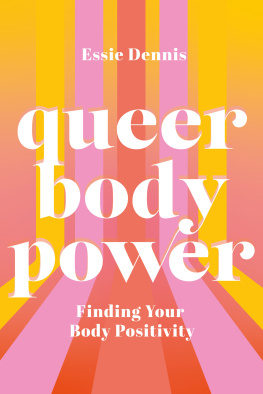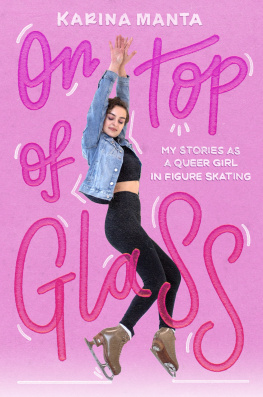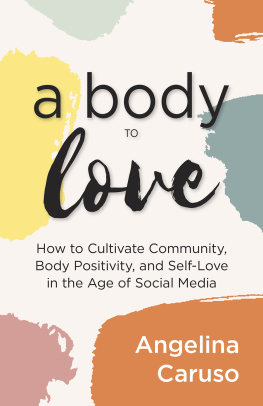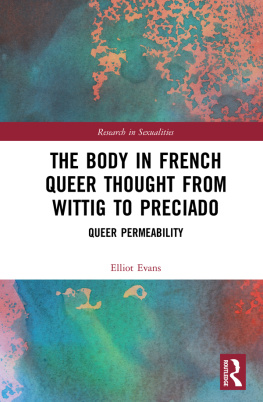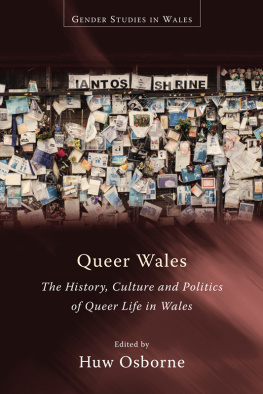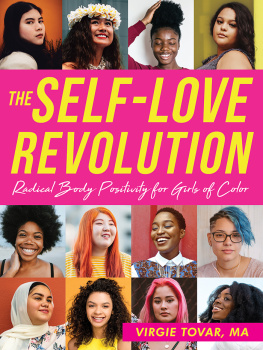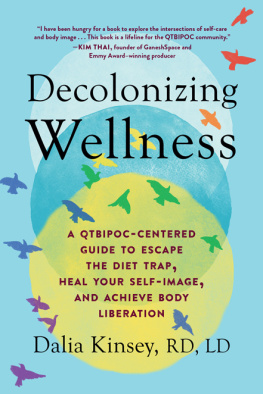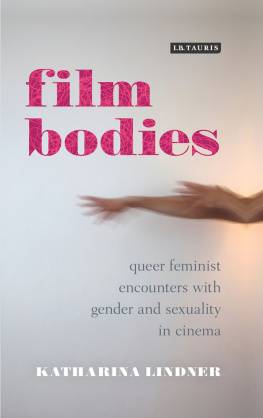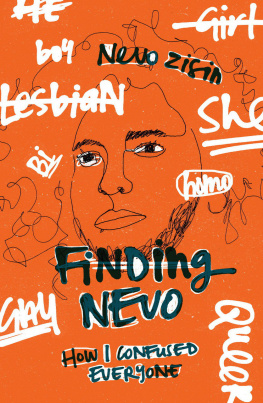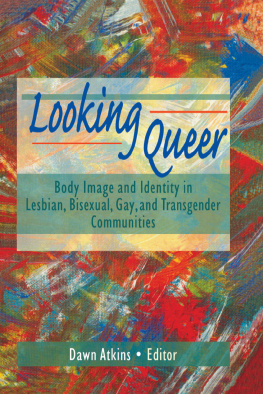Contents
Page list

of related interest
In Their Shoes
Navigating Non-Binary Life
Jamie Windust
ISBN 978 1 78775 242 9
eISBN 978 1 78775 243 6
Queer Sex
A Trans and Non-Binary Guide to Intimacy, Pleasure and Relationships
Juno Roche
ISBN 978 1 78592 406 4
eISBN 978 1 78450 770 1
Life Isnt Binary
On Being Both, Beyond, and In-Between
Meg-John Barker and Alex Iantaffi
Foreword by CN Lester
ISBN 978 1 78592 479 8
eISBN 978 1 78450 864 7
Fat and Queer
An Anthology of Queer and Trans Bodies and Lives
Edited by Bruce Owens Grimm, Miguel M. Morales, and Tiff Joshua TJ Ferentini
ISBN 978 1 78775 506 2
eISBN 978 1 78775 507 9
Queer Body Power
Finding Your Body Positivity
Essie Dennis

First published in Great Britain in 2022 by Jessica Kingsley Publishers
An imprint of Hodder & Stoughton Ltd
An Hachette Company
Copyright Essie Dennis 2022
Extract from Butler, J. (2004) Undoing Gender . Abingdon: Routledge is reproduced with kind permission from Taylor & Francis through the Copyright Clearance Center.
All rights reserved. No part of this publication may be reproduced, stored in a retrieval system, or transmitted, in any form or by any means without the prior written permission of the publisher, nor be otherwise circulated in any form of binding or cover other than that in which it is published and without a similar condition being imposed on the subsequent purchaser.
A CIP catalogue record for this title is available from the British Library and the Library of Congress
ISBN 978 1 78775 904 6
eISBN 978 1 78775 905 3
Jessica Kingsley Publishers policy is to use papers that are natural, renewable and recyclable products and made from wood grown in sustainable forests. The logging and manufacturing processes are expected to conform to the environmental regulations of the country of origin.
Jessica Kingsley Publishers
Carmelite House
50 Victoria Embankment
London EC4Y 0DZ
www.jkp.com
For Casey
Contents
Acknowledgements
I would like to thank the people who were interviewed for this book. Thank you for being so open and honest about your experiences.
Molly Elizabeth Agnew
Yasmin Benoit
Stevie Blaine
Kelsey Ellison
Maxine Heron
Jackson King
Amalie Lee
TJ Lucas-Box
James Makings
R.K. Russell
Charl Summers
Mia Violet
Annie Wade-Smith
Trigger Warning
My aim with this book was always to make it helpful and positive. Although trauma and discrimination are mentioned, I have dealt with issues as sensitively as possible. The following list of potential triggers is included, however, so that you can know a little bit about what is mentioned in the book and decide to skip anything that may be triggering for you.
Ableism is mentioned throughout, but there are never any detailed references to ableist violence.
Eating disorders are mentioned throughout, but in the most detail in the chapter Our Complex Relationship with Food. I never go into too much detail but I do talk about disordered behaviour and my mental state during my own recovery.
Fatphobia is mentioned throughout, but in detail in the chapter Unlearning Fatphobia.
Racism is mentioned as an issue throughout, but mostly in the chapter Bodies Are Political. There are references to racism experienced by some of my contributors but there are never any detailed references to racist violence.
Transphobia is mentioned throughout, but mostly in the chapter Gender Roles? In This Economy? There are no detailed references to transphobic violence.
Introduction
W hat does it mean to be queer? As an activist I find myself thinking about the finer details of queerness all the little things that make us who we are. Nowadays, it feels like there are two distinct sides of my own life as a queer person. One is the commodified pride. We are loved and valued by the world for one month, for the occasional national something day. Then two, after all that is over, there is the lived reality of queerness. Or perhaps I should say the many lived realities. The reality of feeling strange and wrong for such a long time, trying to navigate a world that has no system for you in all its structures. The reality can be the mental health toll of discrimination, the lack of familial support, the gender dysphoria and the violence we experience. I often find myself pulled between queer joy and queer struggle.
Self-love as a queer person is complex and it has been a reflective journey for me. I grew up thinking that butch was bad, bisexuals were greedy and I shouldnt wear loose clothing because it would hide the curves of my body. Makeup was used for cover, not enjoyment. I was told flowery dresses were flattering (and we all know flattering is code for makes you look thinner), so I wore them. I felt like my body was betraying me, telling the world I was something I just wasnt.
From as young as I can remember, disordered eating blighted my life. Upon much reflection, I realized how intrinsically linked my body image and my queerness had always been: the obsession the world had with how men perceived me, my fertility, my femininity, made me want to shrink my body so I barely existed at all. If I couldnt exist in a way that I felt comfortable, I did not want to take up space. A cultural obsession with thinness convinced me that it must be the fat on my body that made me feel so at odds with everything. Therefore, I began to fixate on my food.
When I was 12 years old, I was diagnosed with anorexia/bulimia. I think perhaps the diagnosis would have been more nuanced nowadays as there were big parts of my eating disorder that were not really noticed, such as intense over-exercising. I mention that this was when I was diagnosed , because I would like to make it clear that the behaviour had been there since I was around 6 years old.
I am not the only person who has had experiences with an eating disorder or bad body image as a child, and this makes me wonder just how young body dissatisfaction really begins. I believe that it is woven into the fabric of our personhood from the moment we begin our journey into society, with threads being steadily added over time. Pulling the threads is painful. It feels wrong and unnerving to begin untangling parts of ourselves we thought were so integral: a sense that we are not enough the way we are.
By the age of 16, I was seriously struggling with my mental health. I truly am not being dramatic when I say that being a teenager is a whirling hellscape. Being a queer kid with an eating disorder (attempting to hide both) on top of the early stages of a disability was just awful. And I think when youre that age, you dont necessarily believe that there is a world for you ten years on. I remember clearly thinking that the only way I could possibly be happy was if I lost weight. I struggled a lot with hyperfixation, thinking that complete control over my body would be a cure for sadness. Isnt that what we are always told? Buy this, eat this, drink this, and you will wake up perfect. Capitalism is the puppet master of self-image after all, and it relies on you believing that everything you are is wrong.
I will explain my own experiences more deeply as we move through this book, but it is important for me to show that disordered eating really did shape my adolescence, and recovery shaped my early twenties. Online communities were my saviour. My saviour from wasting away, my saviour from a heterosexual narrative that makes my body squirm.

